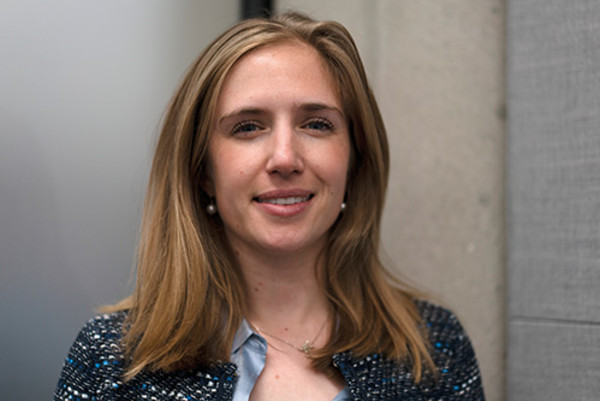

Troy Asset Management is the investment vehicle set up by the former manager of the pension fund at GEC, a company famously cautious and known for its huge cash pile.
Troy founder, Sebastian Lyon, created a series of funds with a similarly cautious approach – a variety of multi-asset and equity income funds that hold quite a large allocation to cash.
But Troy clients, as elsewhere, are placing more demands for ethical investments on the fund manager, and as a result the company set up the Trojan Ethical Fund.
Managed by Charlotte Yonge, the fund is a multi-asset fund with a strong ethical focus.
She is also assistant fund manager of the £4.3bn Trojan Fund, which takes into account environmental, social and governance considerations in its stock selection.
She says: “It’s increasingly important with companies [that we invest in] being on the front foot. Consumers are not going to give them a basis to operate [without an ESG commitment].
“The financial cost of not being progressive on this front is going to be multiple.
“Climate change is now one of the most important threats facing us.”
Climate change costs
Even if one is sceptical about climate change, the costs are coming “down the pipe” she says.
“There’s going to be a financial cost; carbon pricing is coming and businesses need to be on the front foot because of regulation.
“It’s not yet harmonised across the world and that’s what needs to happen.”
She adds that it has become an imperative: “In trying not to lose money, we’ve always been aware of the ESG risk.
“It applies across all of the funds.”
As an example, she cites Unilever, which has an internal carbon pricing system, whereby each business division and manufacturing site is charged for each tonne of carbon emitted and this pricing is invested into environmentally-focused technology.
“So it is already penalising itself, before the regulation.”
Microsoft, she says, takes the issue even more seriously.
“Microsoft is not only reducing its carbon footprint but offsetting every tonne of carbon it has emitted.”
Stockpicking
Regarding the £103m Trojan Ethical fund, clients have specifically asked for certain stocks to be excluded, such as tobacco and alcohol.
The difference between the two, is that the ethical fund negatively screens certain stocks, whereas ESG focuses more on engaging with the invested stock directly, talking to the company’s leaders about their sustainability and governance.
She says: “We’re going to keep monitoring these businesses, having a dialogue where we can see where they’re making a change – where they’re going to is just as important as where they are today.
“Supply chains are one of the areas that we speak to business about, so we are advising at executive level and board level.
When it comes to actual stock-picking, Ms Yonge says the company in general takes a value-oriented approach to its stock selection, although this is more value-sensitive rather than a full-on value approach.
“We see value in what we’re all doing, and find growing companies at reasonable prices, but we’re very conscious that value only works if that business is sustainably growing, and it’s going to be around in five or 10 years.
“A lot of businesses have been in the fund for 10 or 15 years.”
Investment approach
The investment approach is about “seeing long-term trends in the market and not necessarily participating when markets are at their most ebullient.
“We invest across equities, bonds, we have index-linked gilts, physically-backed exchange-traded commodities and cash.”
However, because of the central bank activity, where bonds and equities have become more closely correlated, the funds hold a lot of cash, perhaps more than other managers, partly to pick up companies when they are cheap.
The company also has an Ethical Income fund as well as a Global Income and Global Equity fund.
Women in the industry
One of Ms Yonge’s sidelines is helping more young women into the fund management industry through a charitable network called Gain – Girls Are Investors, where she is a co-founder.
Together with a few other senior women, she noticed that the drop-off rate for women making it to the top of the fund management industry was dramatic, and those coming into the industry were still predominantly men.
Ms Yonge and her colleagues thought the obvious thing would be to approach university students, to talk about their careers and how much they enjoyed being fund managers.
“But students have already decided what they want to do and are not a particularly captive audience.
“So we went back to the drawing board and started to get in front of women who were at an earlier stage, at sixth form.”
The main aim of the network is to get in front of these young women and increase the female application rate to fund management.
The initiative has been going for about a year and a half, and has sponsorship from Troy and Alta – a family investment office.
“Many young women did not understand what investment was and how it directly affects the economy, and how it was different from investment banking.”
The charity is still in its early stages, but has developed a network of ambassadors who can act as role models and sources of information.
For Ms Yonge, this will only see more women come into a sector that is also hoping to have an impact on companies’ carbon footprint.
Melanie Tringham is features editor at Financial Adviser and FTAdviser



